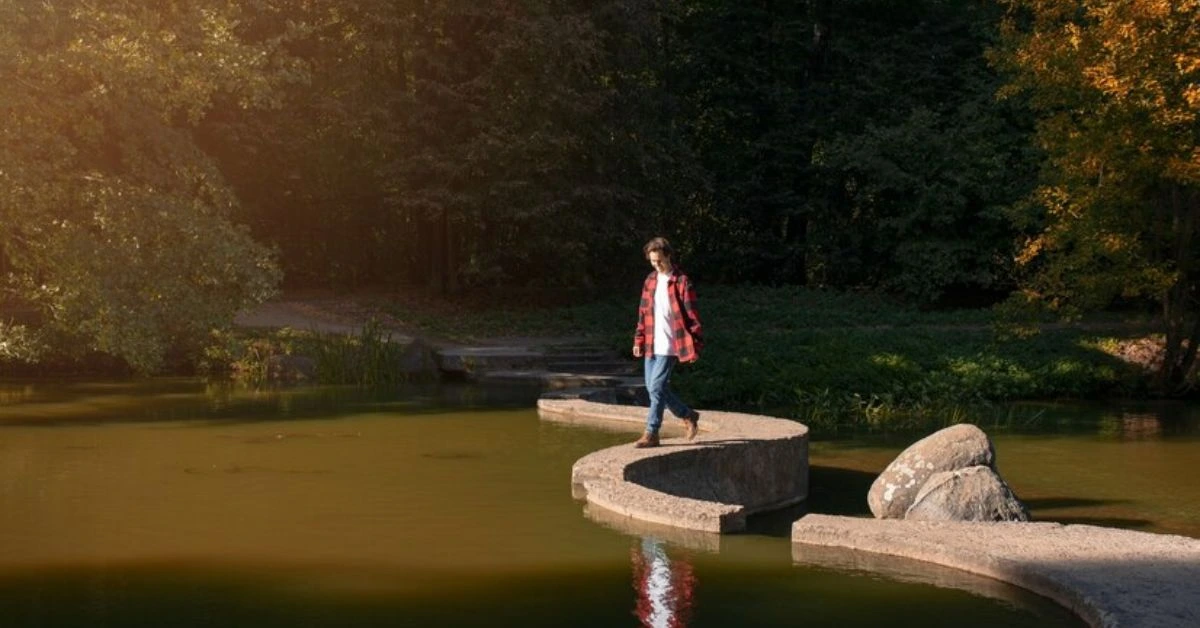Discovering Mizukando: A Path to Mindful Living and Inner Peace
In today’s fast-paced world, where stress is an ever-present companion, finding peace and tranquility has become increasingly important. Enter Mizukando, a Japanese practice of mindfulness that offers a path to cultivate inner calm and balance. Rooted in ancient traditions, Mizukando encourages individuals to connect with their surroundings, appreciate simplicity, and embrace the present moment. This art of mindful living provides a unique way to navigate the complexities of modern life by encouraging peaceful reflection and harmony.
In this comprehensive guide, we will explore the history, principles, benefits, and practical ways to incorporate Mizukando into your daily life. Whether you’re looking for a way to reduce stress, deepen your connection with nature, or foster a sense of gratitude, this practice offers a transformative journey toward a more peaceful and fulfilling life.
What is Mizukando?
Mizukando is a mindful living practice that is deeply rooted in Japanese tradition. It is an art that emphasizes the cultivation of inner peace, balance, and awareness. The term “Mizukando” is derived from the Japanese words “mizu” (water) and “kando” (way or path), suggesting a journey that involves cleansing both the body and mind through mindful interactions with nature, especially water.
At its core, Mizukando invites individuals to be present in the moment, observe their thoughts without judgment, and connect deeply with their surroundings. It is not merely a set of practices but a way of life that encourages a holistic approach to mindfulness.
The History and Origins of Mizukando
Mizukando has its roots in Zen Buddhism, which flourished during the Edo period in Japan. Zen teachings emphasize the importance of simplicity, harmony, and mindfulness in daily life. The practice of Mizukando evolved from ancient water rituals performed by Zen monks, who believed that immersing themselves in water could cleanse the mind and body, bringing them into a state of clarity and peace.
As the practice evolved, Mizukando began to encompass not just water rituals, but also activities such as nature walks, tea ceremonies, and other meditative practices that fostered mindfulness. The idea was to integrate mindful awareness into every aspect of life, promoting a sense of peace and well-being.
In modern times, Mizukando has transcended its historical and religious origins, becoming a practice embraced by people from all walks of life. The principles of Mizukando have been integrated into various lifestyle practices, promoting a deeper connection with nature and oneself.
Key Principles of Mizukando
The practice of Mizukando revolves around several core principles that guide its practitioners toward mindfulness, serenity, and self-awareness. These principles can be applied to every aspect of life, from daily activities to personal growth. Let’s explore the key principles of Mizukando:
Mindfulness
Mindfulness is the foundation of Mizukando. It involves being fully present in the moment, paying attention to your thoughts, feelings, and the environment around you. This principle encourages individuals to engage deeply with life, letting go of distractions and focusing on the present. Mindfulness helps foster a heightened sense of awareness, allowing you to connect more deeply with both your inner world and the external world.
Simplicity
Simplicity plays a crucial role in the practice of Mizukando. It encourages individuals to simplify their lives, both mentally and physically. By decluttering your mind and surroundings, you create space for clarity, peace, and serenity. Simplicity allows you to appreciate the beauty in everyday moments and foster a deeper sense of gratitude.
Connection to Nature
One of the central elements of Mizukando is its emphasis on nature. Whether it’s the flow of a river, the rustling of leaves, or the sound of rain, nature serves as a mirror to our inner state of being. Engaging with nature fosters a sense of grounding and harmony. Mizukando encourages individuals to spend time outdoors, observing the natural world around them and finding peace in its simplicity.
Gratitude
Gratitude is another essential principle of Mizukando. By acknowledging and appreciating the small joys in life, you cultivate a positive mindset and an openness to the present moment. Whether it’s a kind gesture from a friend or the beauty of a sunset, expressing gratitude enhances mindfulness and deepens your connection with the world.
Balance
Balance is at the heart of Mizukando. It encourages practitioners to find equilibrium in all areas of their lives—between work and relaxation, activity and stillness, giving and receiving. Achieving balance allows you to live in harmony with both your inner world and the external world, promoting emotional well-being and tranquility.
Benefits of Practicing Mizukando
Practicing Mizukando offers a wealth of benefits that can positively impact both your mental and physical health. Whether you’re looking to reduce stress, improve focus, or develop emotional resilience, Mizukando can provide the tools you need for personal growth. Some of the key benefits include:
Stress Reduction
One of the most significant benefits of Mizukando is its ability to reduce stress. By focusing on the present moment and letting go of distractions, Mizukando helps quiet the mind and promote relaxation. The practice of mindfulness encourages emotional regulation, making it easier to navigate life’s challenges with calmness and clarity.
Improved Focus and Clarity
Mizukando encourages practitioners to hone their focus and be more aware of their thoughts and actions. This heightened state of awareness enhances mental clarity, allowing you to make more thoughtful decisions and improve concentration. The practice also helps eliminate mental clutter, fostering a sense of calm and order.
Enhanced Emotional Resilience
Through regular practice, Mizukando helps individuals build emotional resilience. By learning to observe thoughts and feelings without judgment, you can respond to difficult emotions with compassion and understanding. This emotional awareness allows you to manage stress more effectively and build stronger relationships with others.
Physical Health and Well-being
The mindful movements associated with Mizukando, such as walking or breathing exercises, promote physical well-being. These activities enhance flexibility, improve circulation, and support overall health. Additionally, the practice of Mizukando encourages better sleep, improved digestion, and a stronger immune system by reducing stress and fostering relaxation.
Increased Creativity and Self-expression
Mizukando fosters a sense of openness and creativity. By embracing the present moment and allowing your thoughts to flow freely, you create space for self-expression. Whether through art, writing, or other creative outlets, Mizukando encourages you to explore and express your inner world.
How to Incorporate Mizukando into Daily Life
Incorporating Mizukando into your daily routine doesn’t require drastic changes. With just a few simple adjustments, you can bring mindfulness into everyday activities and cultivate a more peaceful existence. Here are some practical ways to incorporate Mizukando into your life:
Mindful Walking
Take a moment each day to go for a mindful walk in nature. Focus on your breath and the sensations in your body as you walk. Notice the sounds of birds, the rustle of leaves, and the feeling of the ground beneath your feet. This simple practice allows you to connect with your surroundings and calm your mind.
Mindful Eating
During meals, take the time to savor each bite. Focus on the flavors, textures, and aromas of the food. Eating mindfully encourages you to slow down and fully appreciate the nourishment provided by each meal. It also helps foster a healthy relationship with food.
Create a Tranquil Space
Designate a quiet area in your home where you can engage in mindfulness practices. Whether it’s for meditation, journaling, or simply sitting in silence, having a dedicated space for mindfulness allows you to create a calming environment where you can recharge.
Practice Gratitude
Start and end your day by practicing gratitude. Take a few moments to reflect on three things you’re grateful for. This simple practice can shift your mindset and help you focus on the positive aspects of life.
Breathing Exercises
Incorporate deep breathing exercises into your routine. Spend a few minutes each day inhaling deeply through your nose and exhaling slowly through your mouth. This helps reduce stress, increase relaxation, and improve overall well-being.
Examples of Mizukando Practices
Mizukando offers a variety of practices that help you deepen your mindfulness and connect with the present moment. Here are a few examples:
Nature Immersion
Take time to immerse yourself in nature. Whether it’s a walk in the park, a hike in the mountains, or simply sitting near a body of water, being in nature helps you reconnect with the earth and promotes inner peace.
Mindful Tea Drinking
Engage in the ritual of mindful tea drinking. Take the time to savor each sip of tea, paying attention to the aroma, flavor, and warmth. This simple practice encourages you to slow down and appreciate the present moment.
Creative Expression
Explore your creativity through art, writing, or other forms of self-expression. Allow yourself to flow freely, without judgment, and see where your imagination takes you.
Breathing and Meditation
Incorporate breathing exercises and meditation into your daily practice. Spend time each day focusing on your breath, letting go of distractions, and cultivating stillness.
Cultivating Mindfulness through Mizukando
At the heart of Mizukando is the cultivation of mindfulness. This practice encourages you to embrace the present moment and cultivate a deeper awareness of your thoughts, feelings, and surroundings. It teaches you to appreciate the simple joys in life and encourages you to slow down, be present, and find peace in every moment.
By embracing nature, practicing gratitude, and incorporating mindfulness into your daily activities, Mizukando allows you to live a life of balance, clarity, and serenity.
Conclusion
Mizukando is more than just a practice—it’s a way of life that encourages mindfulness, simplicity, and connection to nature. Through its core principles of mindfulness, gratitude, and balance, Mizukando offers a path to inner peace and emotional resilience. By incorporating these practices into your daily life, you can reduce stress, enhance creativity, and cultivate a deeper connection with yourself and the world around you.
In today’s world, where stress and distractions are commonplace, Mizukando offers a much-needed respite. It is a practice that invites you to slow down, be present, and find peace in the simple moments of life. Whether you’re looking to reduce stress, improve your emotional well-being, or simply live more mindfully, Mizukando is a practice that can help you achieve greater balance and fulfillment.
By embracing the art of Mizukando, you can embark on a journey toward peace, clarity, and a more mindful, connected way of living.







